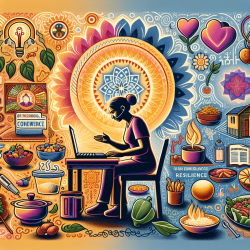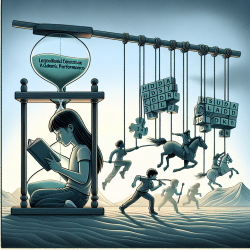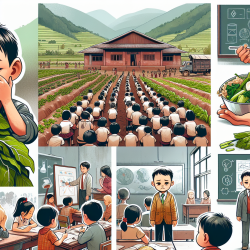Introduction
As a practitioner dedicated to creating positive outcomes for children, understanding the resilience embedded in cultural foodways can be a powerful tool. The research article "African and Native American Foodways and Resilience: From 1619 to COVID-19" provides a profound exploration of how these communities have adapted their food systems to survive and thrive despite historical and ongoing challenges.
The Power of Resilient Foodways
The resilience of African American and Native American foodways is a testament to their ability to adapt and innovate in the face of adversity. From the introduction of chitlins and fry bread to the reclamation of traditional food practices, these communities have demonstrated an unwavering commitment to preserving their cultural heritage. Practitioners can draw inspiration from these stories of resilience to foster a deeper understanding of cultural sensitivity and healing.
Implementing Research Outcomes in Practice
Practitioners can enhance their skills by integrating the insights from this research into their practice. Here are a few ways to do so:
- Cultural Sensitivity: Understanding the historical context of foodways can help practitioners develop culturally sensitive approaches to therapy, acknowledging the unique challenges and strengths of each community.
- Community Engagement: Collaborating with community leaders and elders can provide valuable insights into traditional practices and foster a sense of belonging and empowerment among children.
- Promoting Health and Well-being: Encouraging the integration of traditional foods into dietary practices can support physical and mental well-being, promoting a holistic approach to health.
Encouraging Further Research
The research presented in the article is a stepping stone for further exploration. Practitioners are encouraged to delve deeper into the rich tapestry of cultural foodways and resilience. By doing so, they can contribute to a broader understanding of how traditional practices can inform modern therapeutic approaches and enhance outcomes for children.
Conclusion
Incorporating the lessons from African and Native American foodways into practice not only enriches the practitioner's skill set but also honors the resilience and strength of these communities. By fostering cultural sensitivity and promoting healing through traditional food systems, practitioners can create meaningful and lasting impacts on the lives of children.
To read the original research paper, please follow this link: African and Native American foodways and resilience: From 1619 to COVID-19.










